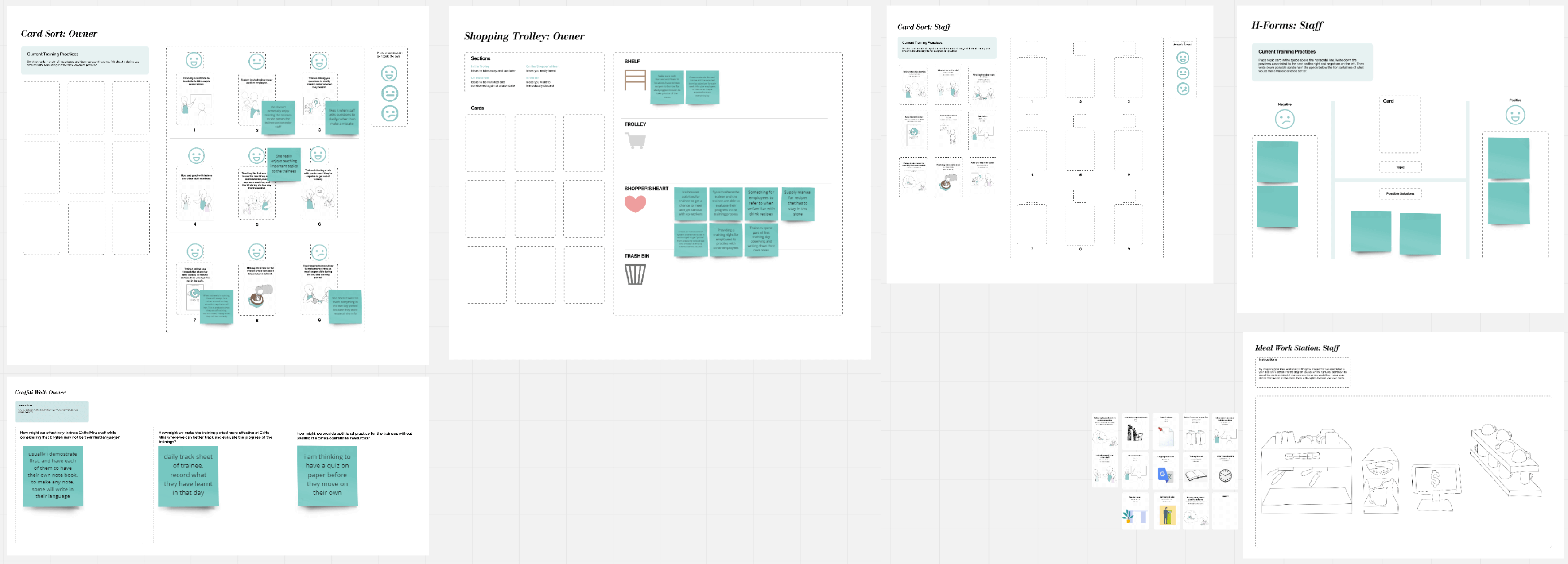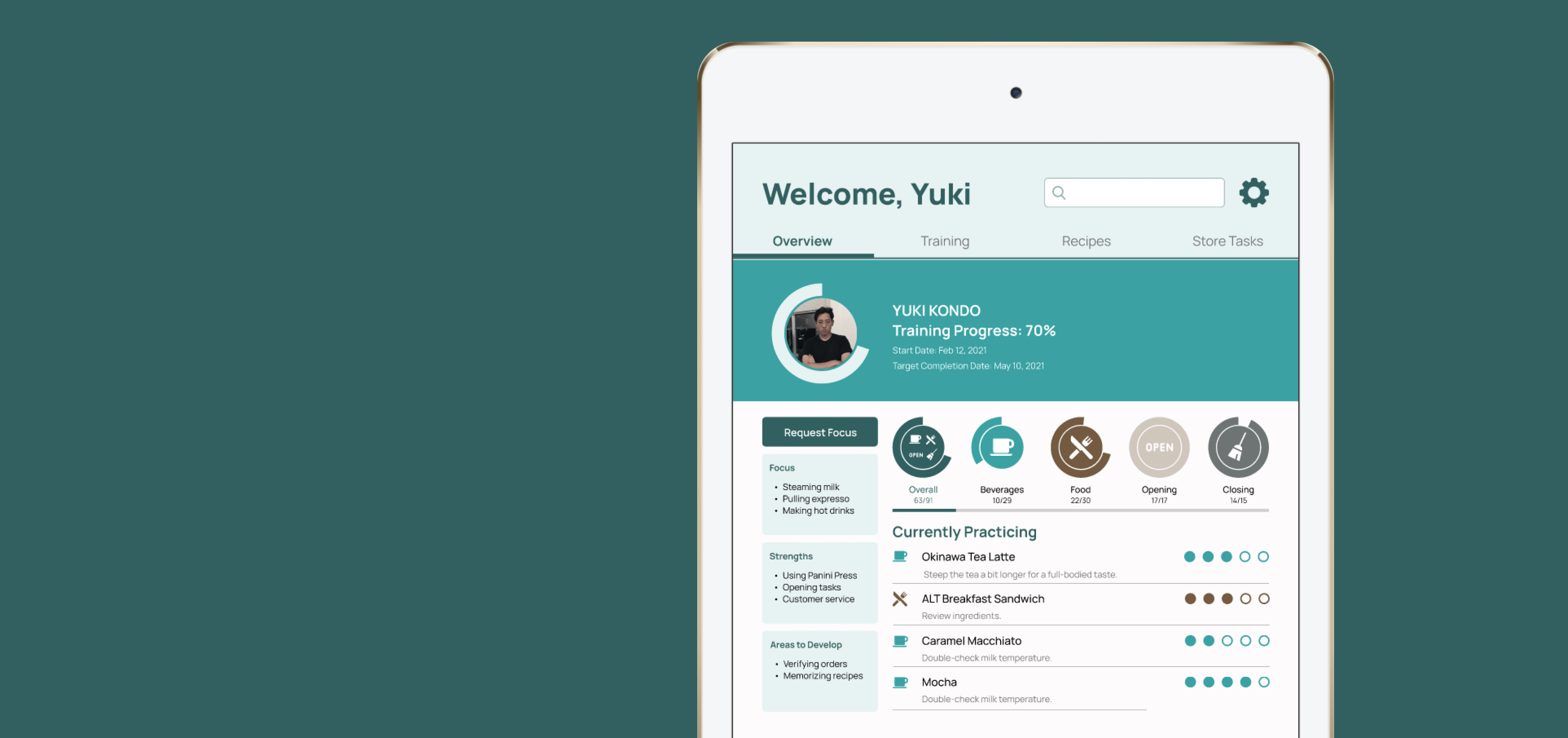long staff training period
As a café well-known for their friendly staff and great customer service, we discovered that the café had a unique employee composition where a majority of staff were Japanese and Korean working visa holders.
This was a significant detail to note, as a work visa is only valid for a limited amount of time and employees were not guaranteed to stay after reaching their visa extension dates. Additionally we found that the time required for new staff to become fully capable and independent could take as long as 3 months depending on the trainee’s own learning speed.
This unique staffing situation created an opportunity to explore intervention points within the employee experience, eventually leading to our final focus on proposing methods to reevaluate and improve the staff training process. For a detailed breakdown, view our Final Slide Deck.
3 key insights
From our primary and secondary research, the team compiled insights about Caffe Mira employee needs that could be addressed to the training experience:
- Being able to train at your own pace
- Supporting memory retention of materials
- Increasing comfort and confidence
Training Application Walkthrough
a training app
The Caffe Mira learning management system is designed to aid a trainee from the moment they are hired until their graduation from trainee status. It is flexible towards the needs of each new barista trainee, while providing a clear roadmap to reach the end of training, allowing the trainer to provide specific feedback and the trainee to request areas they require extra assistance.
This system is delivered in an iPad app format and consists of various digital training activities, which upon completion will add to the trainee’s personal profile. There is also a recipe database for the trainee to reference during in-store downtime and extra practice.
Within the personal profile, learning completion of all necessary tasks is documented, along with their strengths, areas of improvement and a field to request for extra assistance from a senior staff. The trainee will be notified when the trainee has completed learning and training materials and recipes will still be accessible.

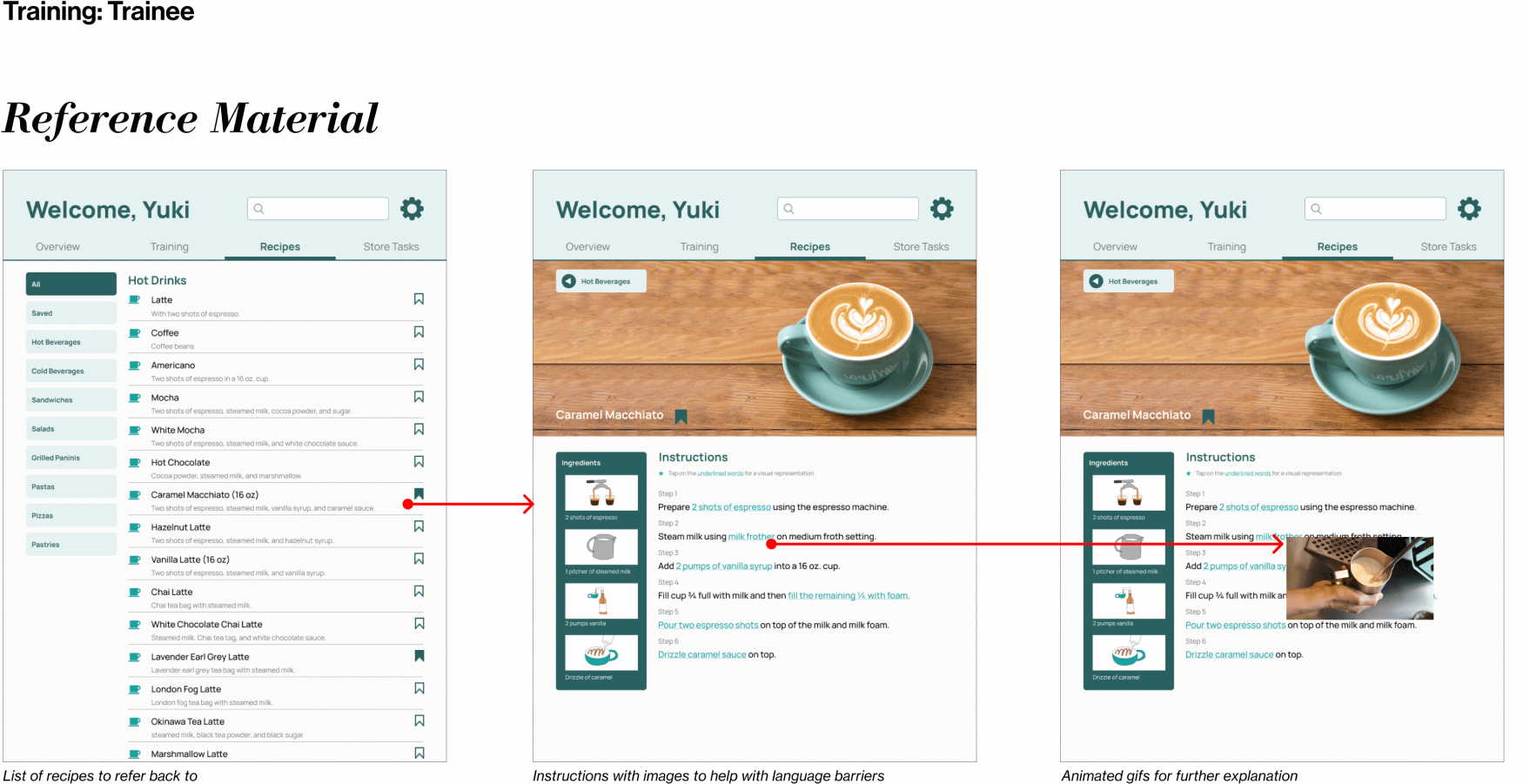
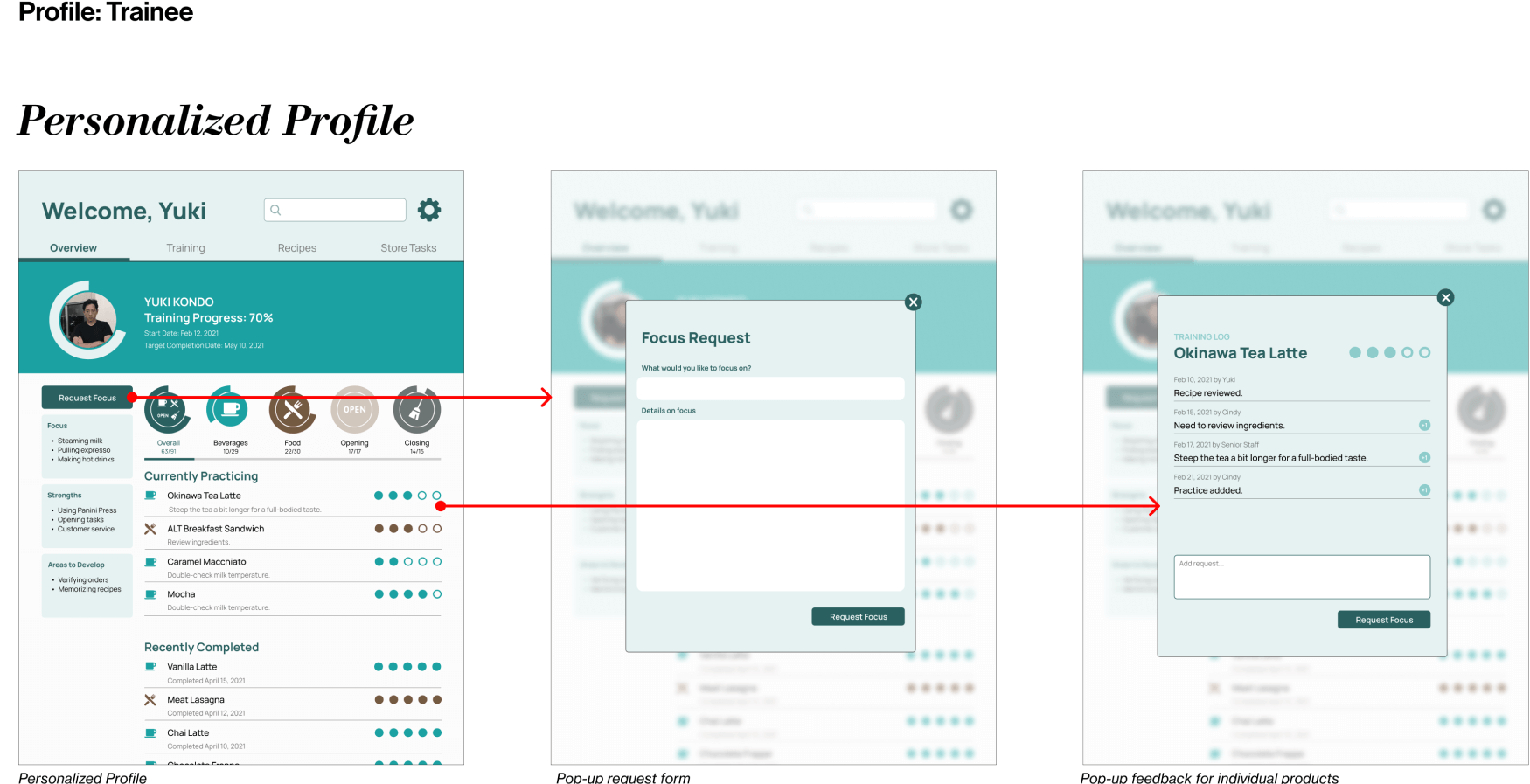
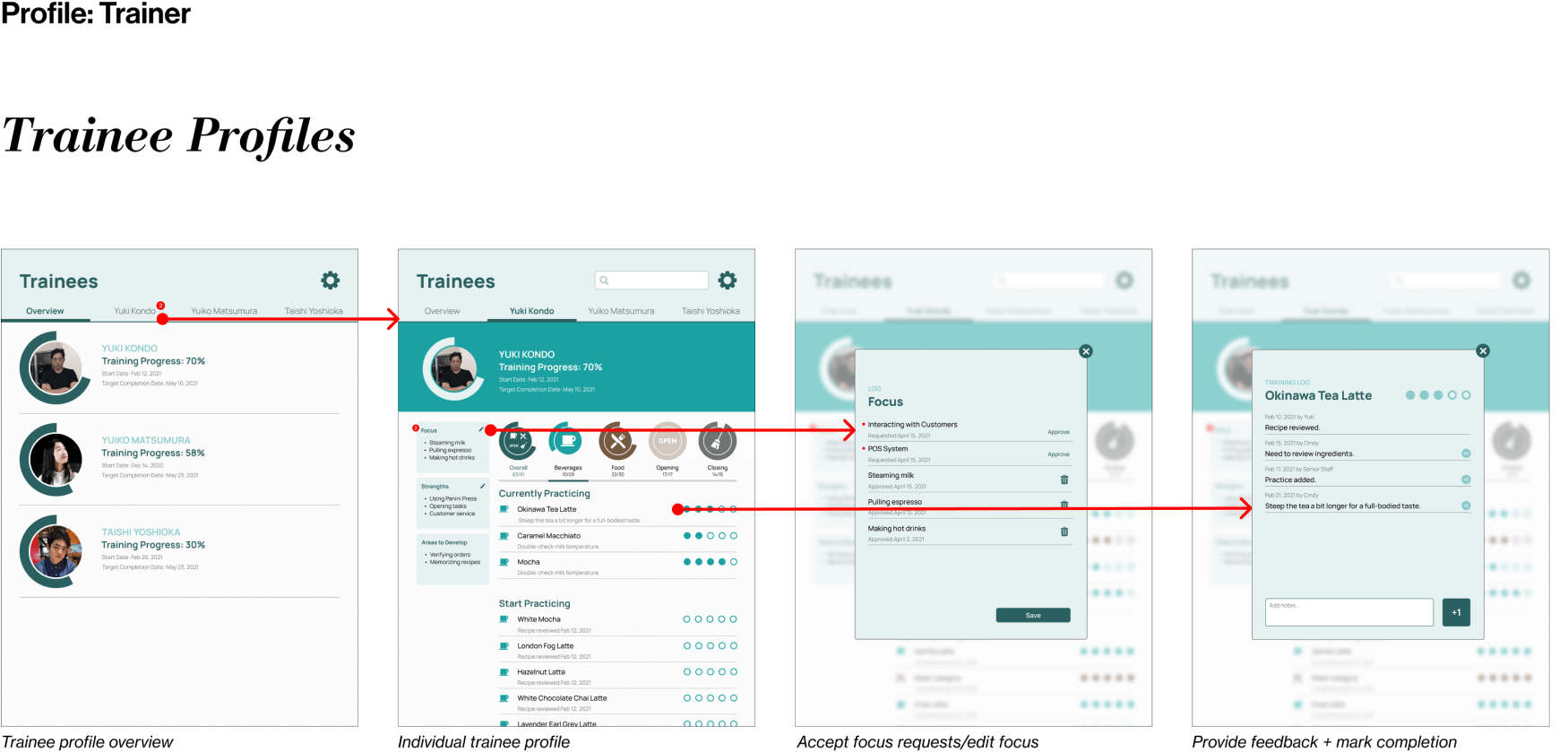
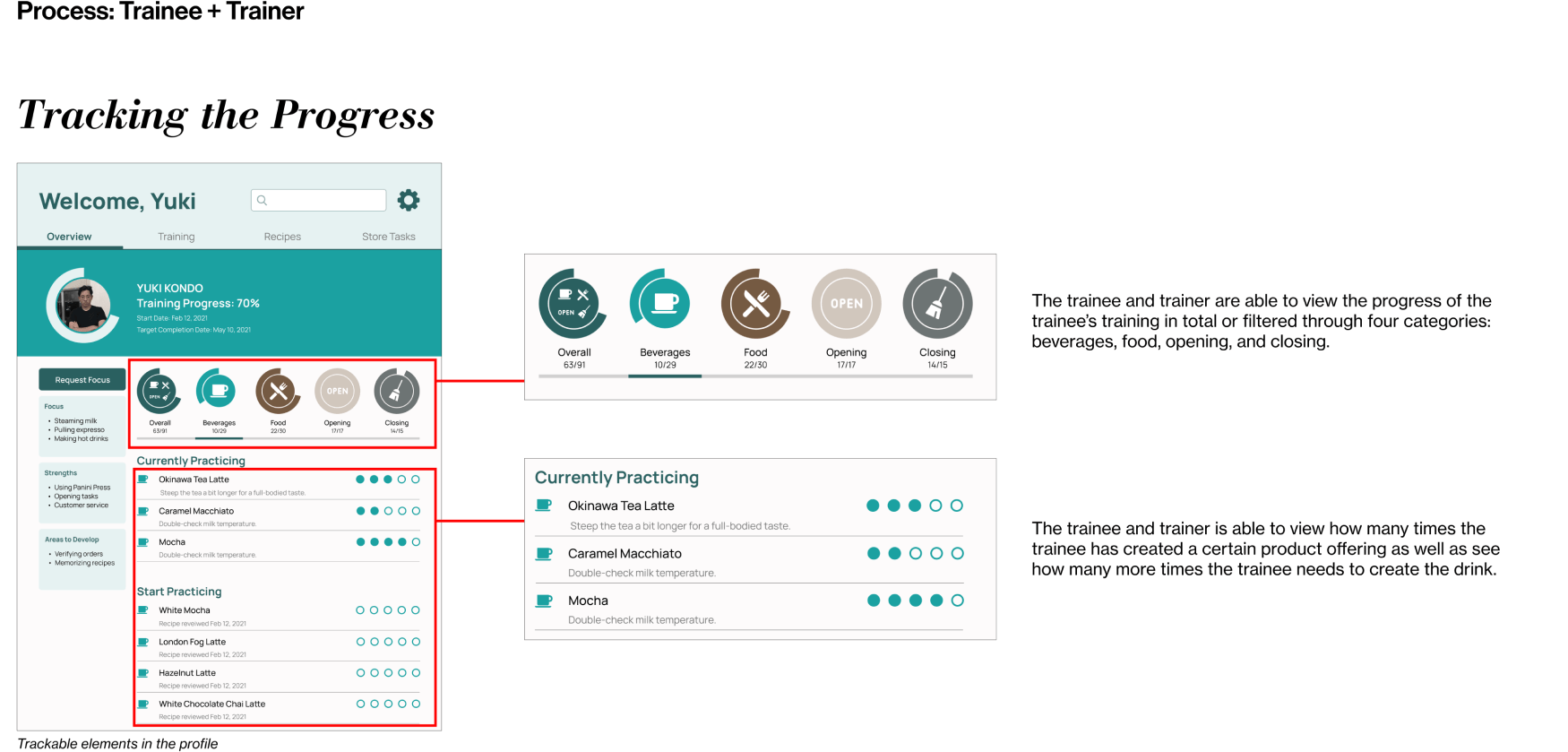
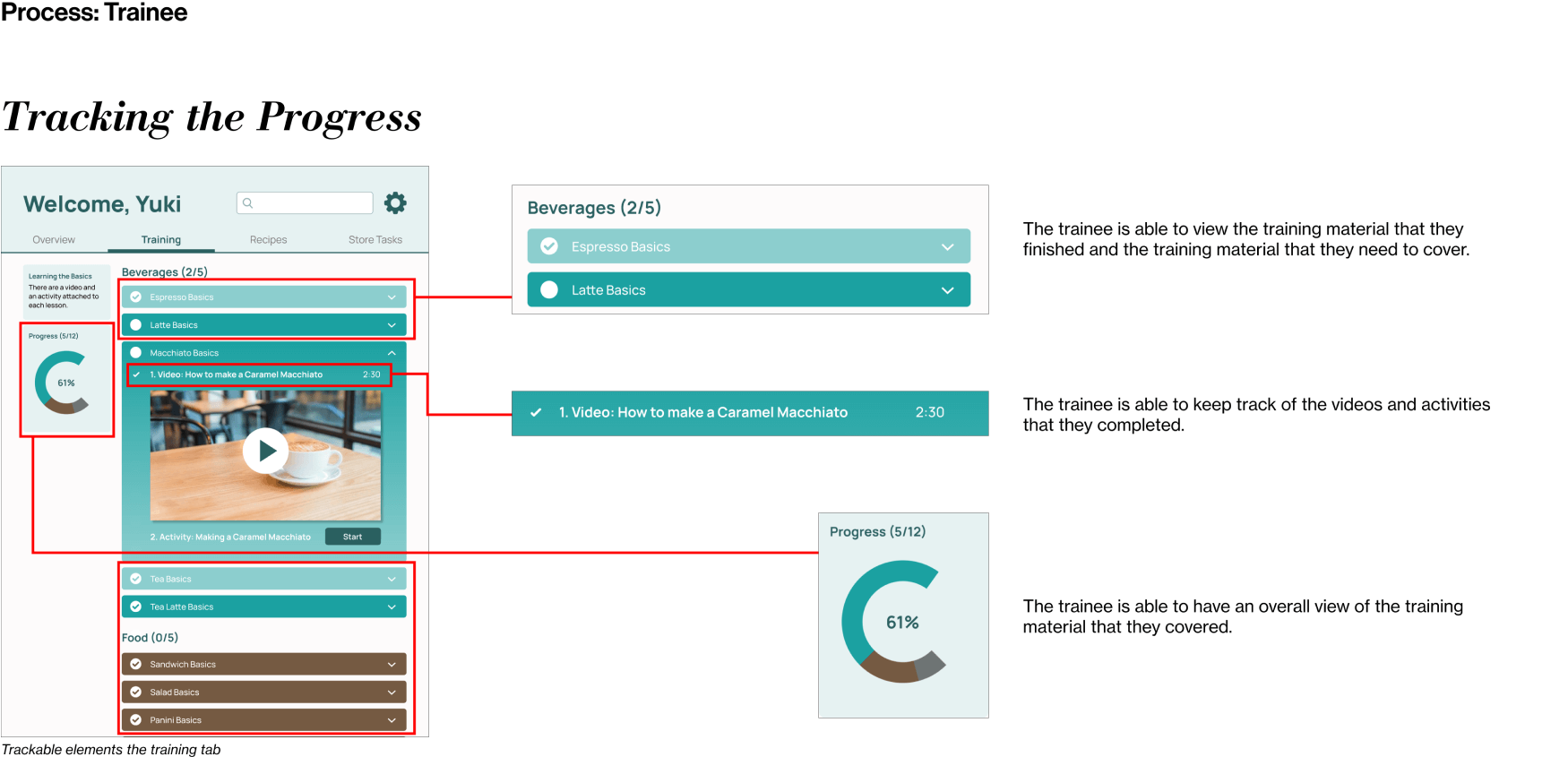
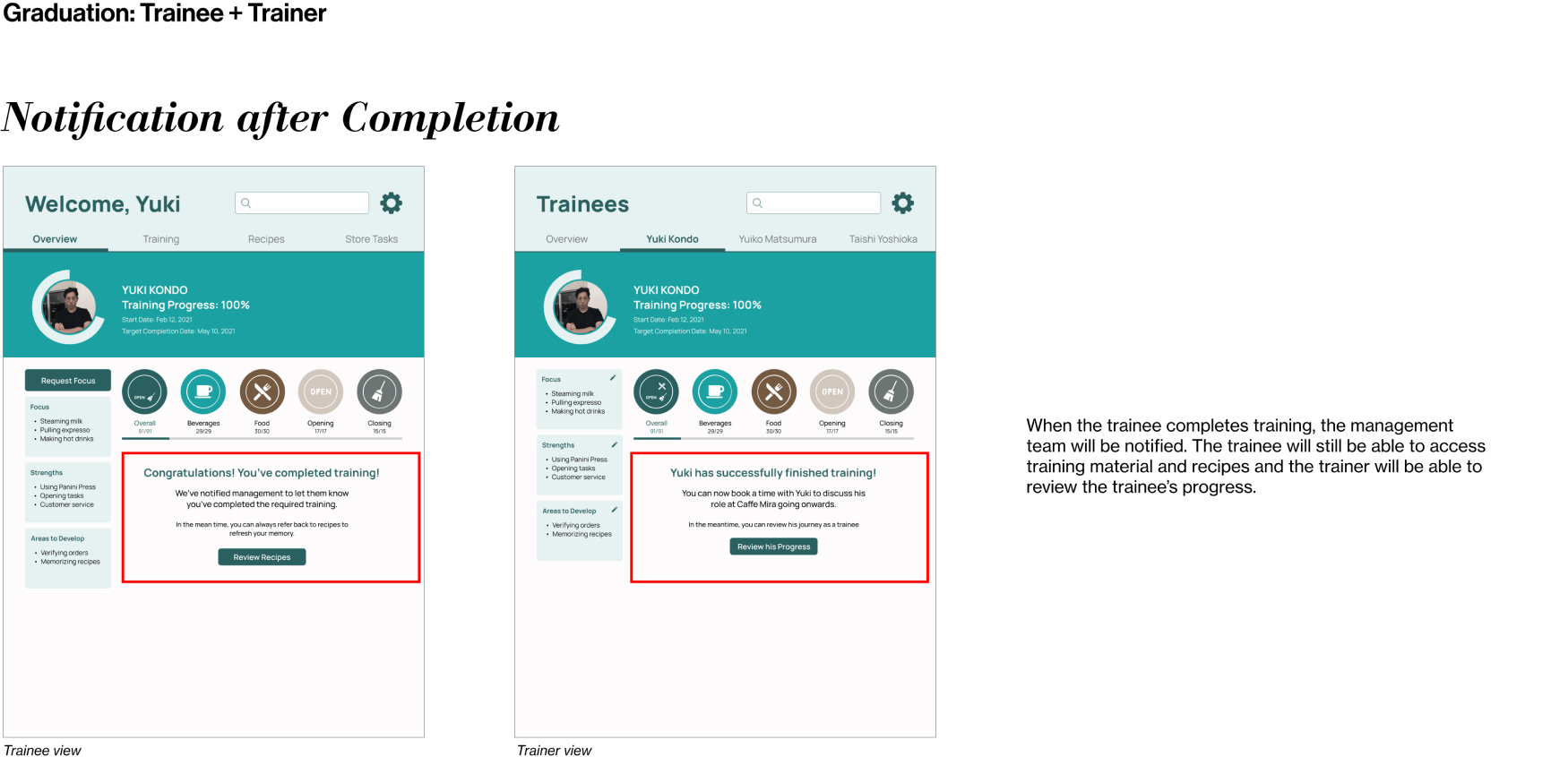
research process
We explored the impacts of having international students as staff, the prevalence of Japanese and Korean culture and café culture within Vancouver, as well as analyzing Caffe Mira’s brand and reviews and doing a competitor analysis to better understand how we could intervene in a meaningful way. From there, we interviewed the owner to learn more about areas that affect the café and organized our interview findings into 9 main themes: Job Appeal, Hiring, Business Goals, Marketing, Online Presence, Management, Customer Experience, Customer Retention and Training.
We then conducted observational research within the physical Caffe Mira locations to observe the atmosphere and constraints of the physical store space, as well as asking employees questions during downtime about their working experiences at the café. This process led the project to focus on diving deeper into the staff training process as a potential area of intervention. To see how the Caffe Mira training and working experiences compared to other baristas across Greater Vancouver, we created and disseminated a Google Form survey across Instagram and Reddit.
As the team got closer to a clearer problem area that could be tackled, we designed a participatory workshop to be conducted on Miro, one version for employees during their downtime and one version for the owner during a Zoom session.
The employee workshop was mainly visual focused and cards were written with English, Japanese and Korean translations for ease of access. Due to time constraints, each of the team members conducted one employee workshop. From the information collected during the employee sessions, their thoughts and opinions were synthesized, anonymized and carried over to the owner workshop, so their ideas could be evaluated and organized according to how much the owner liked the ideas. The owner was also encouraged generate ideas and organize training tasks so that the team could see how it compared to staff answers.
